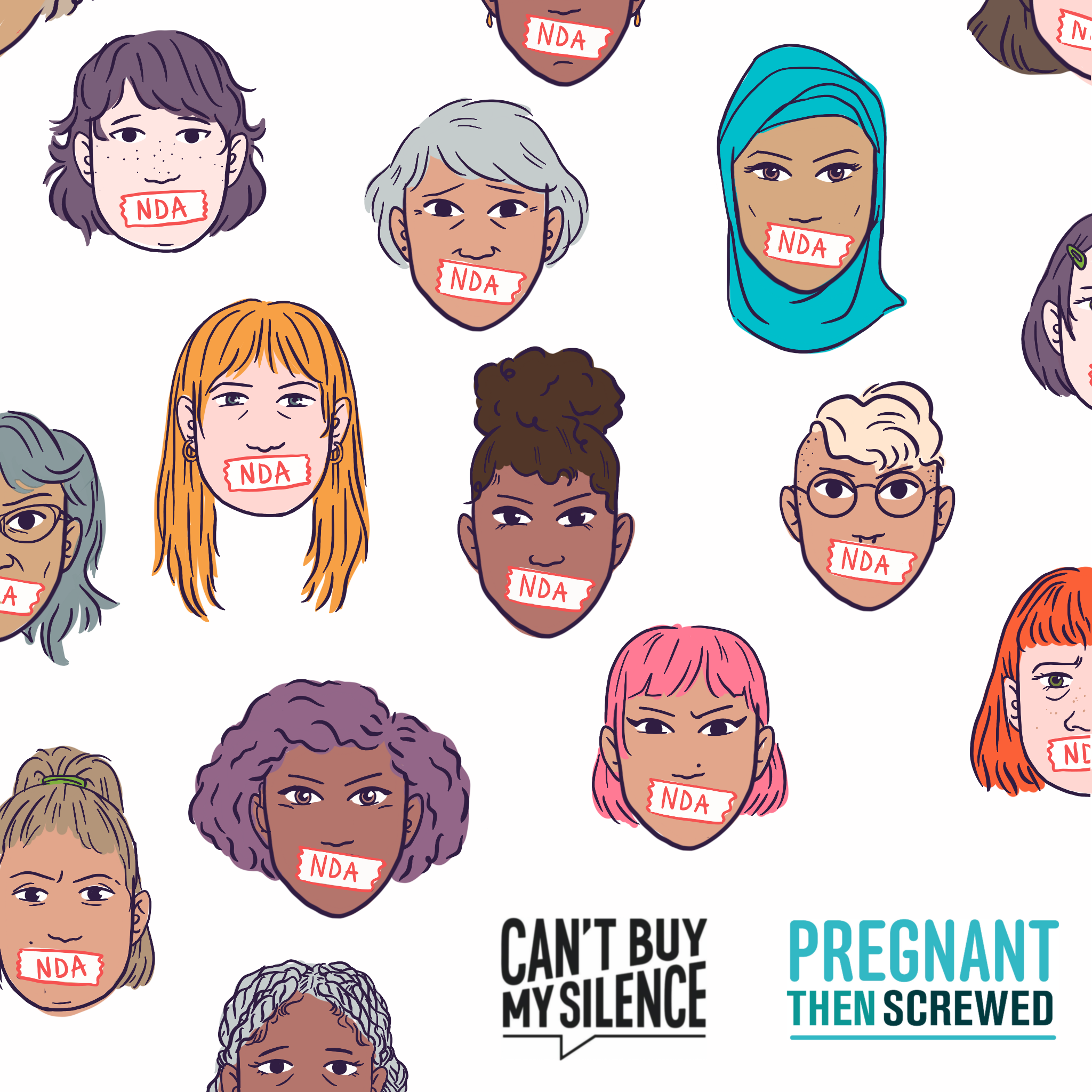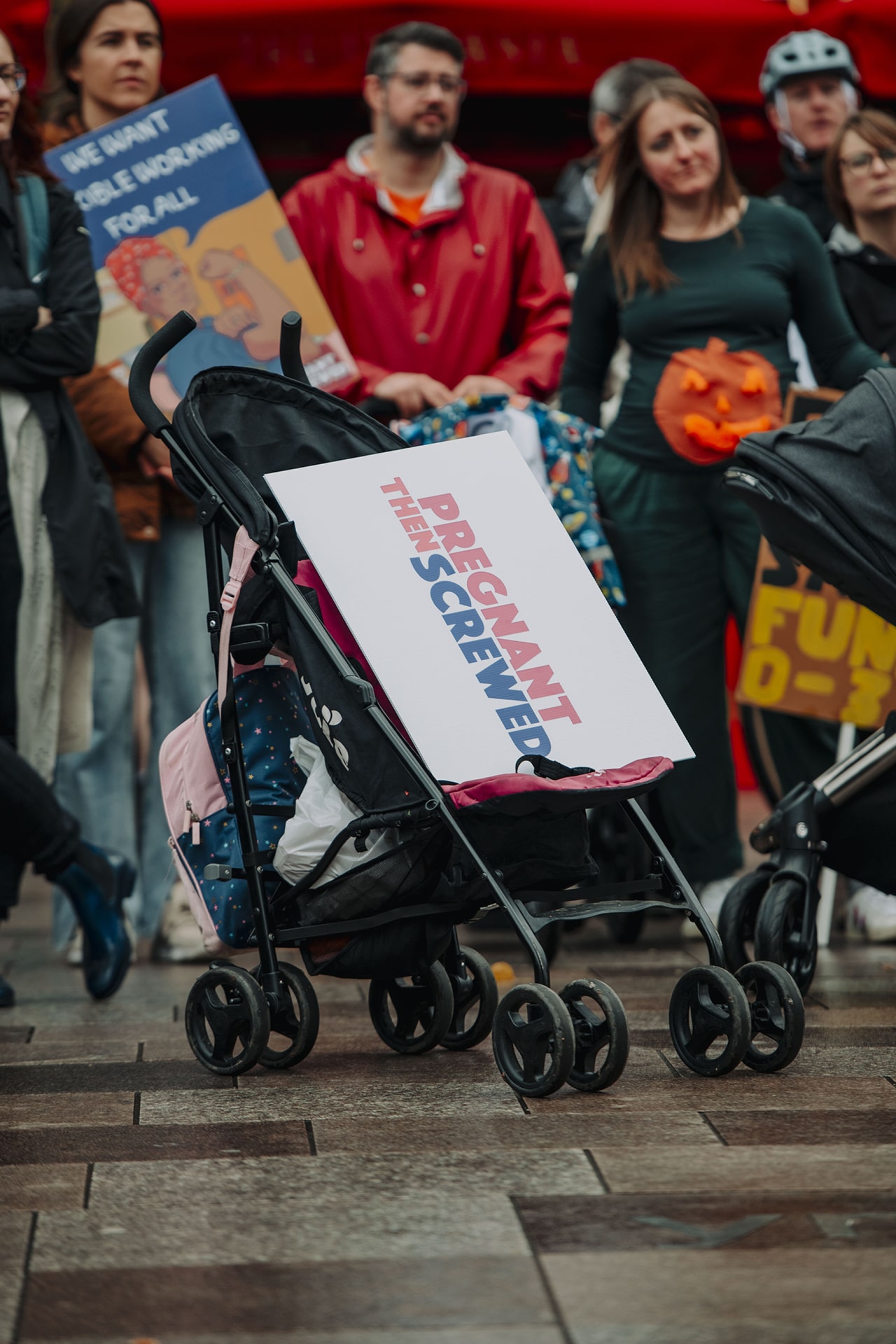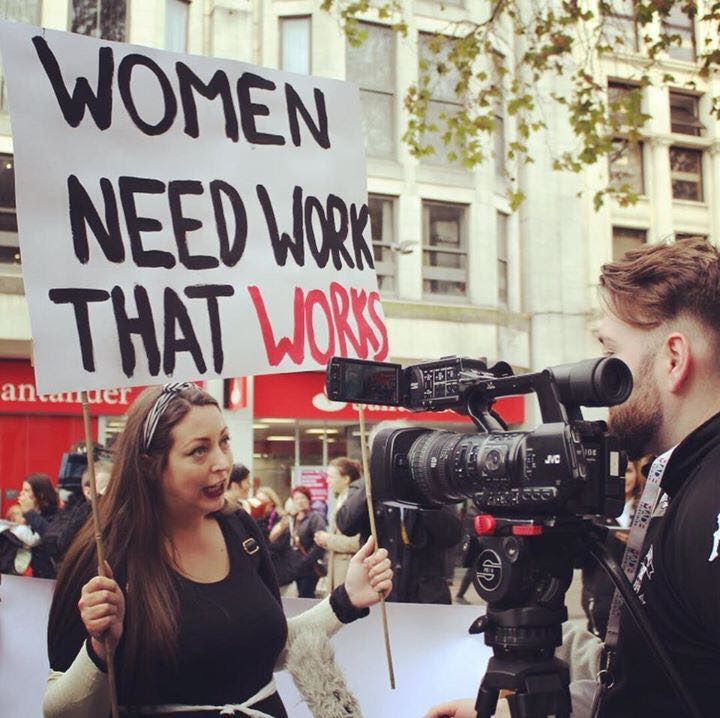What’s the problem?
Non Disclosure Agreements are legal blackmail, used frequently by companies to mask abhorrent behaviour. We do not know the full extent of the problem as NDA’s are signed behind closed doors and their use is not monitored.
Our own 2022 research of 696 women who signed an NDA has shown that 90% of women who signed an NDA after encountering maternity discrimination said signing was their only option, 72% said signing had a negative impact on their mental health, 78.5% believe their employer had used NDA’s to hide wrongdoing multiple times and 90% of those who signed said they would have been happy for people to know what had happened to them at that organisation.
NDAs ensure that an employer can protect their reputation, this acts as an incentive for companies to settle a claim without going through a tribunal. If NDAs were abolished it would mean fewer companies would settle in advance, forcing victims to face a gruelling and costly tribunal process. Abolishing them is therefore not an option. We need to find new ways of reducing the use of NDAs whilst ensuring discrimination victims can access the justice they deserve.
What progress have we made?
We are working with a team of brilliant employment lawyers to develop the concept of a discrimination risk register. It sounds complicated and boring but we really think it will make a whole world of difference into driving genuine culture change in organisations and weeding out all of those rotten apples so stick with us.
Currently employers only have to prove that they took “all reasonable steps” to prevent the discriminatory acts that people have complained about if they want to avoid being held liable in court.
During the court process, the company will have to prove how it dealt with the situation at hand. BUT, there is absolutely no legal obligation for employers to report historic allegations of discrimination in the workplace. So that means, even if the person who committed the discriminatory act has actually been involved in multiple discrimination complaints, nobody would know.
If we can make it so that employers record every discrimination complaint in one register, it will help employers spot trends and stop them from spiralling into large workplace culture issues. It would also mean that anybody raising a discrimination claim could use the register as evidence in court and prove that an employer hasn’t been taking “all reasonable steps” to stop discrimination from happening.
We will soon be looking for organisations to start this practise voluntarily whilst we work to make it something they are legally required to do. After all, if an employer genuinely wants to run an organisation where discrimination isn’t able to thrive, they would have no reason not to do this right?



